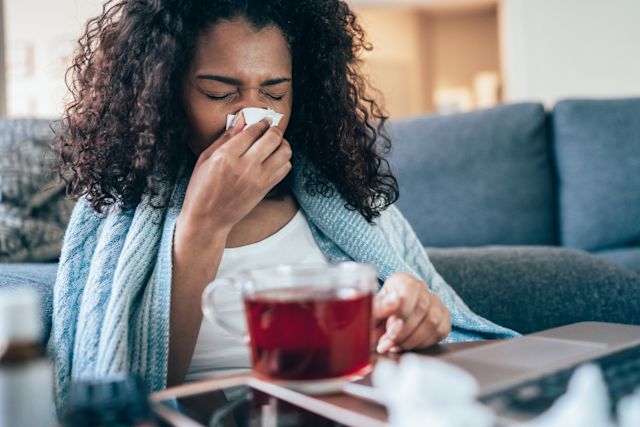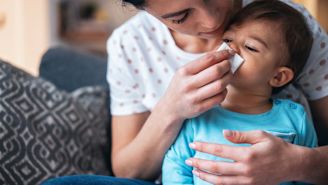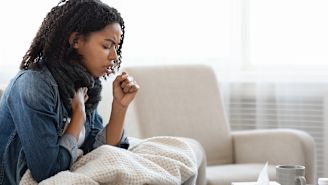Updated on December 9, 2025.
You may have heard that you can get sick from going outside without a hat during winter. More people do tend to get sick during colder months. But it is not directly due to the weather. Chilly weather causes more people to stay indoors more often. And being inside around other people make it easier for viruses or other germs to spread. This is especially true if you are in a crowded room with closed window or doors where there is not as much ventilation or air flow.
Dry, cold air can also make your nasal passages and airway drier while viruses are more stable—both of which can increases your risk for infection. And when you get less sunlight in winter, your vitamin D levels can drop. This can make it harder for your immune system to fight off germs.
Tips for preventing illness
Taking these steps can help you avoid colds, the flu, and other germs when it is cold outside:
Wear a mask
Keeping a well-fitting mask over your nose and mouth in indoor public spaces protects you and others from colds, the flu, COVID and other respiratory infections.
Socially distance
Stay at least 6 feet away from people who are sick. Putting some distance between you and others—that means no hugging, kissing, or handshakes—may help cut your risk for colds, the flu, COVID, and other infections.
Avoid crowds and poorly ventilated places
Going to restaurants, bars, video game arcades, gyms, and other crowded places may increase your risk for exposure to germs. These places are often crowded and windows may not be open during winter.
Vaccinate
There’s no vaccine for the common cold, but you can and should be vaccinated against COVID as well as the flu. Everyone ages 6 months and older should get a yearly flu shot. Speak with a healthcare provider about your COVID vaccination, as it may depend on your age, health status, and previous vaccinations.
Experts also recommend getting the respiratory syncytial virus (RSV) vaccine if you are pregnant, if you're between the ages of 50 and 74 with an increased risk of severe illness, or if you're age 75 or older. If you have a baby and were not vaccinated during pregnancy, ask your healthcare provider (HCP) about infant immunization.
Wash your hands
When you wash, any germs you pick up go down the drain instead of sticking to surfaces for other people to pick up. Wash your hands before preparing food and eating, after coughing or sneezing, after shaking hands or being in public places, and after using the bathroom (including at home).
Don’t touch your face
Germs on your hands can get into your eyes, nose, and mouth when you touch your face. Wash your hands well and often with soap and water.
Clean and disinfect high-touch surfaces
These include keyboards, fridge handles, light switches, and doorknobs.
When you do sneeze or cough, do it into your mask, cover your mouth with a tissue, or use the crook of your elbow. If you do sneeze into your hands, wash them right away or use hand sanitizer.







